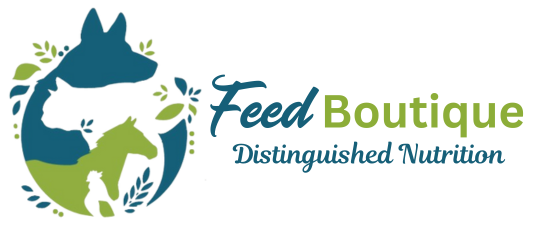
Are vitamins important for pets?
Share
Vitamins are essential micronutrients required for a multitude of physiological functions. Vitamins play a vital role in numerous chemical reactions within the body, supporting growth, development, and overall health. Vitamins are organic molecules, required in small amounts to function as essential enzymes, enzyme precursors, or coenzymes in many of the body’s metabolic processes.
Vitamins can be divided into two main groups, depending on their solubility in fat or water. Additionally, there is a group of vitamin-like substances that are similar to vitamins without fitting exactly into the other two categories.
The fat-soluble vitamins include vitamin A, vitamin D, vitamin E and vitamin K. Fat soluble vitamins are digested and absorbed using the same mechanisms as dietary fat, and their metabolites are excreted mainly in the fees through the bile. Excess fat-soluble vitamins are predominantly stored in the liver, and therefore toxicity is more likely to arise than a deficiency.
The water-soluble vitamins include the B-complex vitamins, and vitamin C. Most of the water-soluble vitamins are absorbed passively in the small intestine and are excreted in the urine. With the exception of cobalamin, the body is unable to store significant amounts of the water-soluble vitamins. Since the water-soluble vitamins are readily lost via the urine and are poorly stored in the body, a daily supply must be available in the food.
Carotenoids, Flavonoids and L-carnitine are generally classified as vitamin-like substances.
The popularity of feeding pets’ additional supplements is increasing with the increase in products available in vet shops and grocery stores. The question you as a pet owner need to ask yourself is, does my pet really need additional vitamin supplementation?
The importance of feeding your pet a complete and balanced food cannot be overstated. If your pet is healthy and eating a well formulated, complete and balanced food, in general, they will not require any additional vitamin supplementation and giving them excess amounts of certain vitamins can be more harmful than good. For example, excess calcium can cause skeletal problems, especially in large-breed puppies. Over-supplementation of vitamin D can induce toxicity and cause hypercalcaemia. The requirement for vitamin D depends on the dietary concentration of both calcium and phosphorus.
If your pet is fed a homemade diet, supplements may be critical. However, supplements should only be fed in accordance with recommendations by veterinary nutritionists and companion animal nutritionists. If your pet has any specific health conditions, your veterinarian will guide you to the appropriate supplements and amounts to be given.
It is important to remember that pets at different life stages (physiological stages) have different vitamin requirements. Foods tailored toward different stages, such as puppy or kitten food, adult food, and senior food, contain different levels of certain vitamins, depending on the requirements of that specific life stage. This is especially important for large-breed puppy foods, as these breeds can develop serious skeletal disorders, such as hip dysplasia, if their food is not balanced correctly. Growing and reproducing pets are building new tissues and therefore need higher levels of vitamins for optimal performance.
Making the decision to buy and feed your pet additional vitamin supplements should be a very careful, well considered decision. Always speak to your veterinarian and nutritionist before feeding your pet any additional supplements.

